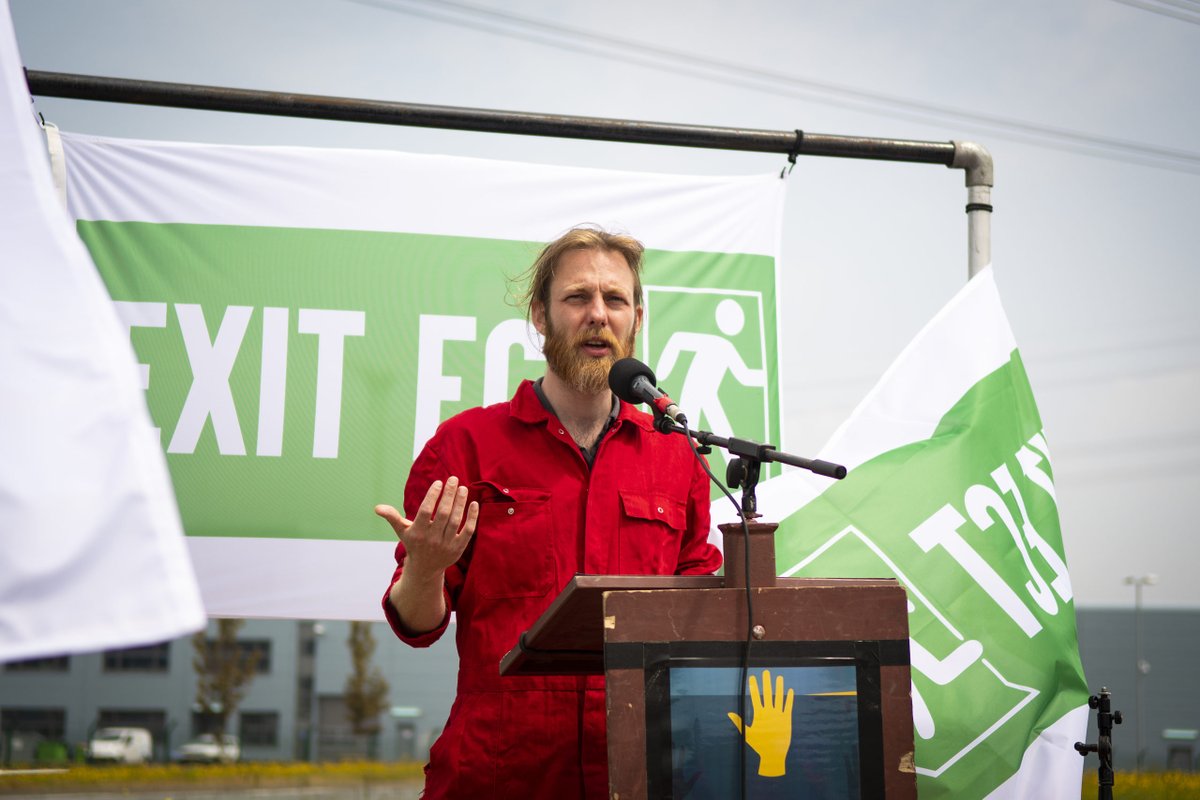
Yesterday the Dutch parliament decided they want to exit the climate wrecking Energy Charter Treaty.
Here is why this is a great move for the climate movement 👇🧵
Here is why this is a great move for the climate movement 👇🧵

The Energy Charter Treaty (ECT) is a major obstacle to tackling climate change.
Through the Investor State Dispute Settlement (ISDS) clause, the treaty allows energy multinationals to sue governments for adopting climate policies that potentially limit their profits.
Through the Investor State Dispute Settlement (ISDS) clause, the treaty allows energy multinationals to sue governments for adopting climate policies that potentially limit their profits.
Globally, at least USD 570 billion has been paid out by governments.
12% of these ISDS cases have originated in the Netherlands.
The Netherlands has also been a target of litigation under the Energy Charter Treaty, with 2 cases concerning a whopping €2.4 billion.
12% of these ISDS cases have originated in the Netherlands.
The Netherlands has also been a target of litigation under the Energy Charter Treaty, with 2 cases concerning a whopping €2.4 billion.
The Netherlands now joins Spain in calling for an EU exit of the Energy Charter Treaty, giving momentum to the movement to end this and other treaties that make use of the ISDS mechanism.
For example, the EU Canada trade agreement (CETA) will see a similar arbitration mechanism put in place.
An exit of the ECT without blocking CETA won't be enough.
Together with partner organisations all around the world, we urge an abandonment of all treaties containing ISDS.
An exit of the ECT without blocking CETA won't be enough.
Together with partner organisations all around the world, we urge an abandonment of all treaties containing ISDS.
It is time to stop paying the shareholders of corporations that harm a #JustTransition, and to instead compensate workers in industries that are facing closure, for example, the successful coal-fund for coal workers in Amsterdam. 

A just transition is only possible when countries are able to implement climate friendly policies without fear of odious and costly litigation by corporations.
#ExitECT
#ExitECT

The battle for the future is also a legal battle.
Will it be private shadow courts paying out taxpayers money to shareholders, or will it be public courtrooms prosecuting companies and CEOs responsible for climate and human right abuses?
Read more -> tni.org/en/energy-char…
Will it be private shadow courts paying out taxpayers money to shareholders, or will it be public courtrooms prosecuting companies and CEOs responsible for climate and human right abuses?
Read more -> tni.org/en/energy-char…

• • •
Missing some Tweet in this thread? You can try to
force a refresh















